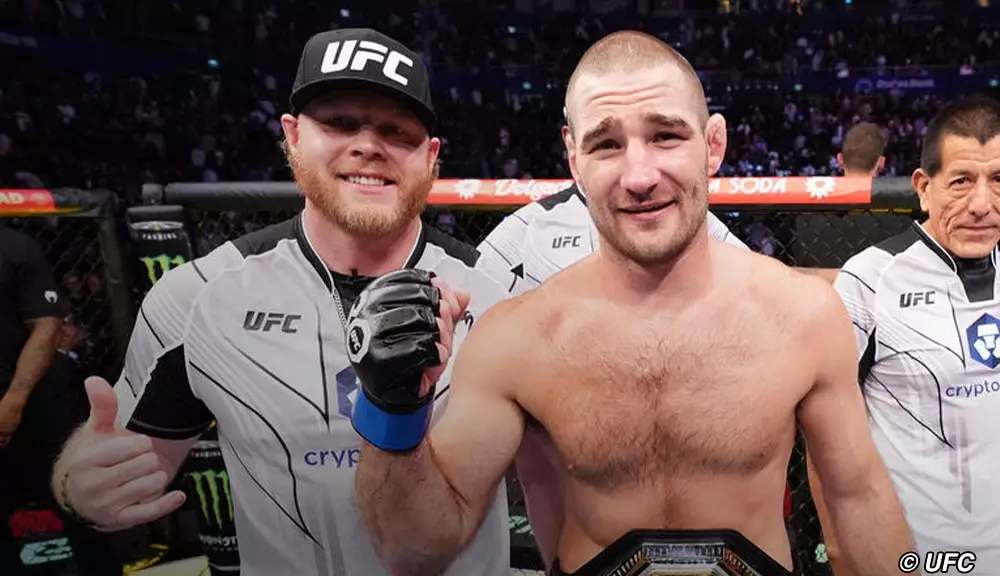The relationship between a fighter and their coach is often one of the most pivotal elements in mixed martial arts (MMA). This dynamic was put to the test recently when Sean Strickland faced Dricus Du Plessis at UFC 312 for a title defended after his shocking victory over Israel Adesanya just months prior. Following a lackluster performance culminating in a unanimous decision loss, Strickland’s coach, Eric Nicksick, expressed dissatisfaction with his fighter’s commitment. This public critique sparked a contentious dialogue between the two, highlighting the friction that can occur when expectations and realities collide in the high-pressure arena of professional sports.
During UFC 312, Strickland was visibly affected by a broken nose sustained in the fight, which did little to aid his performance. Nicksick, who has been instrumental in Strickland’s ascent within the UFC, did not shy away from addressing what he viewed as a defeat fueled more by complacency than the competitor’s spirit. His remarks on “The Ariel Helwani Show” echoed a sentiment likely felt by many in the MMA community, as he questioned Strickland’s dedication to the sport: “If it’s just to make money, then that’s great. Let us know.” These comments reveal a tension that often exists between a coach’s aspirations and a fighter’s motivations.
Strickland’s response to Nicksick’s candid criticism encapsulated a blend of gratitude and hurt. Although he reaffirmed his friendship with Nicksick, it became evident that their professional bond was strained. Strickland’s statement about the camp being a “f*cking struggle” indicates that the challenges he faced were not purely physical but emotional as well. The very nature of their relationship seemed to hang in the balance; he hinted at the possibility of seeking other corner individuals from their training camp, a sign that his loyalty may now be divided.
Analyzing the key takeaway from this encounter, it becomes clear that the sport of MMA is rife with psychological hurdles in addition to physical ones. Strickland’s candid reflections on his struggles encapsulate the tribulations faced by many athletes as they navigate the complexities of competition and personal ambition. Fighters often grapple with intense pressure not only to win but to maintain the support and expectations laid upon them by their teams. As Strickland contemplates his next steps, the divide with Nicksick may serve as a catalyst for self-reflection and growth, both personally and professionally.
In the world of competitive fighting, victories and defeats extend beyond the octagon, influencing relationships and personal self-worth. Strickland and Nicksick’s parallel journeys illustrate the intricate dance between support and accountability, where both must reassess what they need moving forward. As the dust settles from the UFC 312 rematch, the future for both the fighter and coach teeters on the edge of resolution and tension, serving as a reminder of the broader struggles inherent in professional sports. Ultimately, whether through reconciliation or separation, the lessons gleaned from this experience may prove vital for Strickland as he continues his career in the high-stakes arena of MMA.

